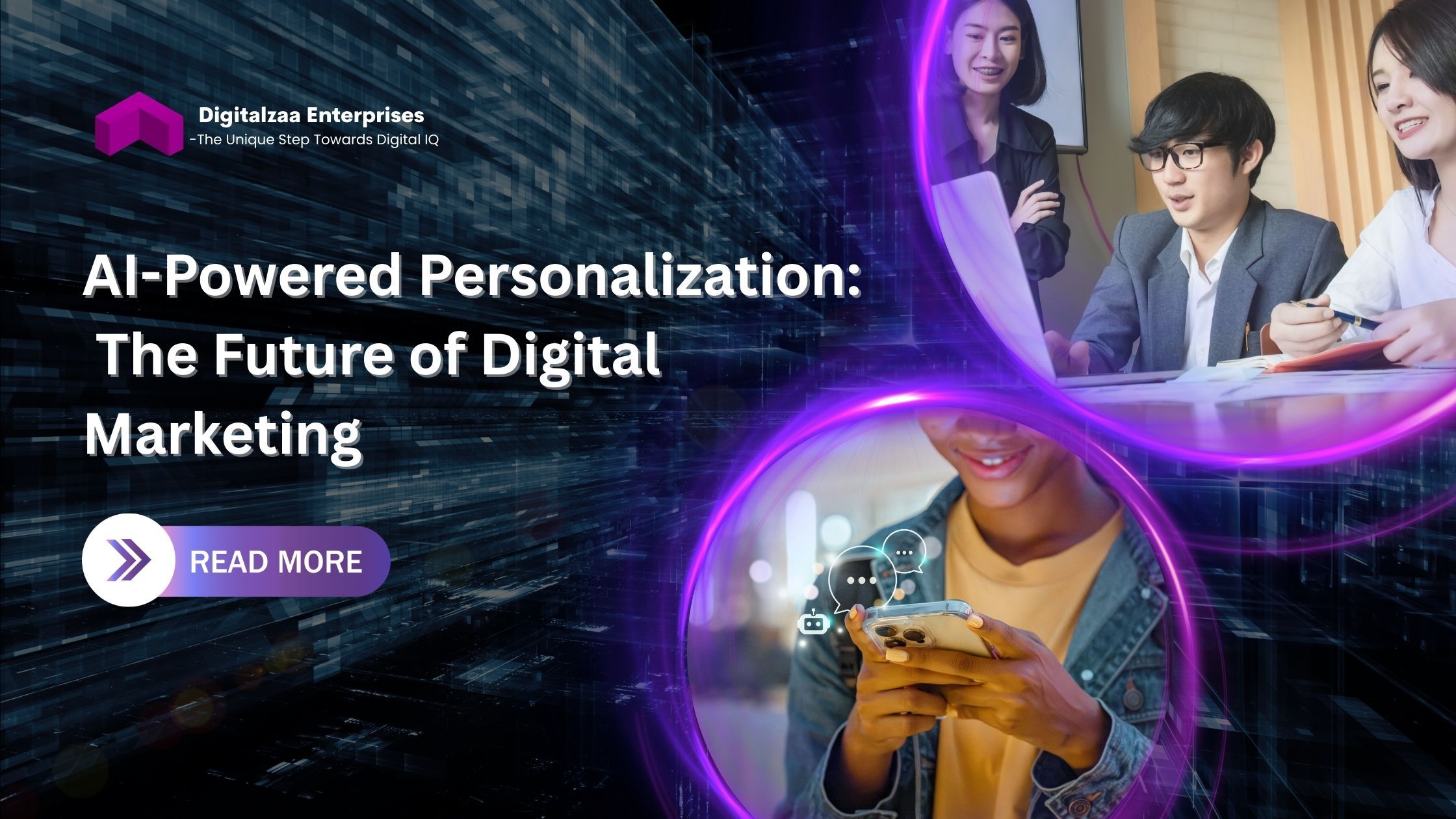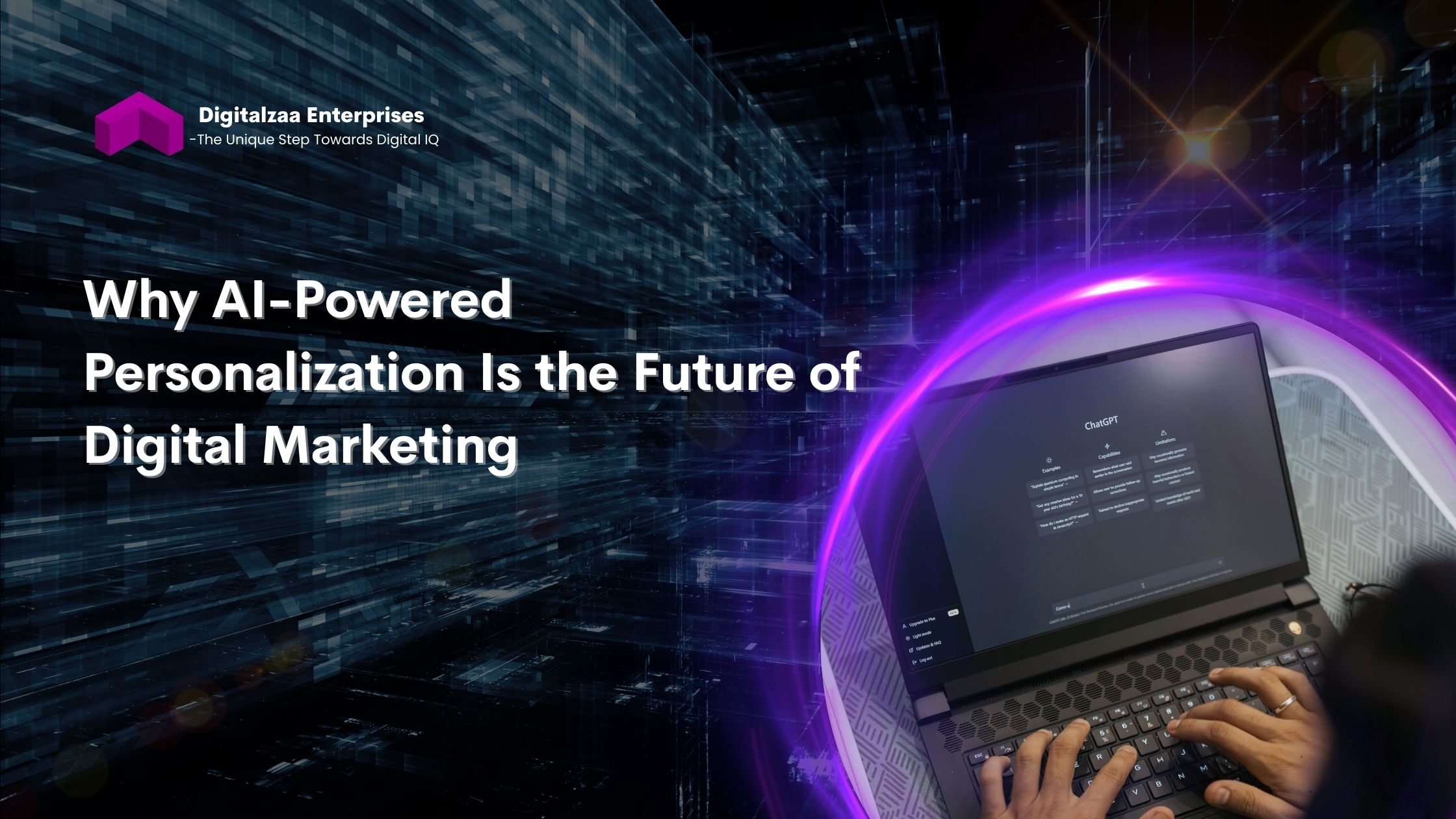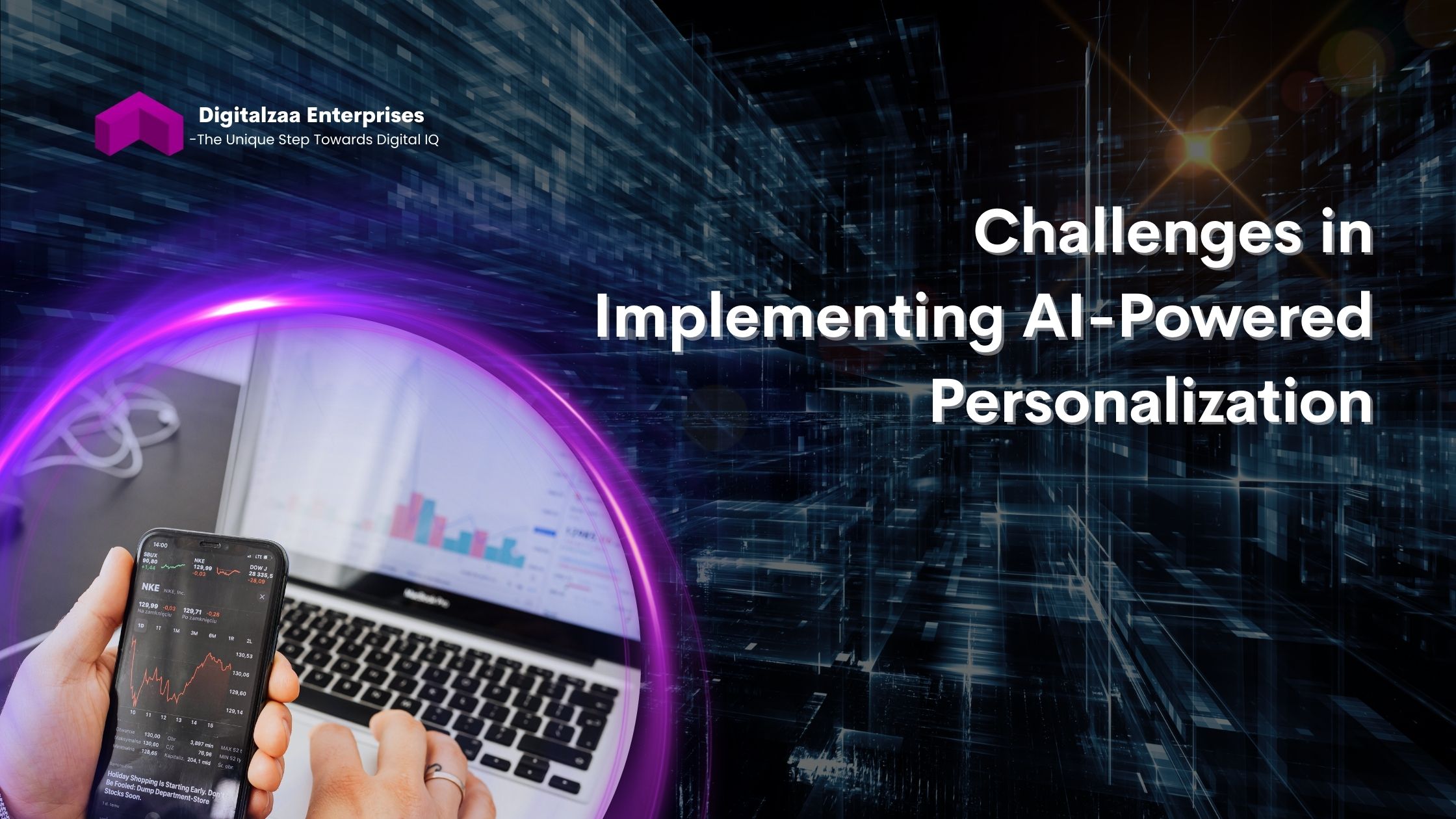AI-Powered Personalization: The Future of Digital Marketing.

In an age where consumers are bombarded with information, generic marketing strategies no longer deliver results. The future belongs to hyper-personalized experiences, and Artificial Intelligence (AI) is at the center of this transformation. AI-powered personalization is reshaping the landscape of digital marketing by enabling brands to engage customers with tailored content, product recommendations, and predictive interactions. It’s not just about data collection; it’s about using that data smartly to anticipate needs, improve engagement, and boost conversions.
In this blog, we’ll explore how AI-powered personalization works, its benefits, use cases across industries, and how businesses can implement it to stay ahead in the competitive digital ecosystem.
What Is AI-Powered Personalization?

AI-powered personalization involves leveraging machine learning algorithms, predictive analytics, and natural language processing (NLP) to create customized digital experiences for individual users. It goes far beyond inserting a customer’s first name in an email. Instead, it analyzes a user’s real-time behavior, browsing history, past purchases, and preferences to predict what they want—and then delivers the most relevant content or offer at the perfect time.
For example, when Netflix recommends shows based on your viewing history or when Amazon shows you products related to your past searches, you're experiencing AI-powered personalization in action.
Why AI-Powered Personalization Is the Future of Digital Marketing
- Changing Consumer Expectations: Today’s consumers expect instant, relevant, and personalized experiences across all touchpoints. In fact, studies show that 80% of consumers are more likely to make a purchase from a brand that offers personalized experiences. With AI, marketers can meet these demands at scale, analyzing thousands of data points in milliseconds to deliver real-time responses.
- Data Explosion and AI’s Analytical Power: With the explosion of digital channels—websites, mobile apps, emails, social media—marketers now have access to massive amounts of customer data. However, making sense of this data manually is nearly impossible. AI excels at analyzing big data, identifying patterns, and drawing actionable insights that enable precision targeting.
- Real-Time Decision Making: AI enables real-time personalization, adapting content, ads, and user interfaces dynamically based on user behavior. This on-the-fly adaptability increases relevance and enhances the overall customer journey, leading to higher satisfaction and loyalty.
How AI Personalization Works: The Core Technologies
To understand the power of AI-driven personalization, it’s important to know the key technologies behind it:
- Machine Learning (ML): ML models can learn from historical data and adapt based on new inputs. They help in segmenting audiences, predicting preferences, and recommending actions without being explicitly programmed.
- Natural Language Processing (NLP): NLP enables AI to understand, interpret, and generate human language. It powers chatbots, email personalization, and voice assistants, allowing for more natural and intuitive communication.
- Predictive Analytics: Predictive analytics uses statistical techniques and machine learning to forecast future behaviors. It helps marketers determine the next best action—what content to serve, which product to suggest, or when to retarget a customer.
- Computer Vision: In image-driven platforms like Pinterest or Instagram, AI can use computer vision to recognize objects in photos and personalize content recommendations accordingly.
Benefits of AI-Powered Personalization in Digital Marketing
- Improved Customer Engagement: Personalized marketing messages drive significantly higher engagement rates than generic ones. AI helps identify what content resonates with different user segments, enabling tailored communications that boost clicks and interactions.
- Higher Conversion Rates: AI allows brands to deliver offers and messages when users are most likely to act, increasing the chances of conversion. Predictive recommendations have proven to dramatically improve upsell and cross-sell performance.
- Enhanced Customer Retention: By providing relevant and timely experiences, brands can foster stronger emotional connections with customers. Retained customers are more valuable over time, and AI personalization helps build that trust and loyalty.
- Efficient Marketing Spend: AI helps optimize ad targeting and campaign strategies, ensuring that marketing budgets are spent efficiently on high-value prospects. Marketers can reduce waste and improve return on investment (ROI) by reaching the right people with the right message.
Real-World Applications of AI-Powered Personalization
- E-commerce: AI recommends products based on user preferences, search history, and buying patterns. Retailers like Amazon and Shopify merchants use AI to personalize:
- Product pages
- Email marketing
- Push notifications
- On-site search results
- Media & Entertainment: Platforms like Spotify and Netflix leverage AI to deliver personalized content feeds. They analyze viewing/listening habits to suggest content that keeps users engaged and subscribed.
- Travel & Hospitality: AI helps personalize travel recommendations, hotel suggestions, and travel itineraries. Companies like Booking.com and Expedia use machine learning to deliver more relevant options based on user preferences and behavior.
- Financial Services: Banks and fintech companies use AI personalization to offer tailored financial advice, detect fraudulent activity, and deliver targeted product offerings based on spending habits.
- Healthcare: From personalized health content to appointment reminders and telehealth interactions, AI enables a more humanized digital healthcare experience for patients.
Challenges in Implementing AI-Powered Personalization

While the benefits are immense, implementing AI personalization comes with its challenges:
- Data Privacy Concerns: AI personalization relies heavily on user data, raising concerns about privacy and data protection. Marketers must comply with GDPR, CCPA, and other data regulations while maintaining transparency with users.
- Technology Integration: AI tools must integrate with existing CRM, CMS, and marketing platforms. Lack of integration can create data silos and hinder personalization efforts.
- Content Scalability: Creating personalized content for multiple segments and channels can be overwhelming. Brands need dynamic content generation tools to scale personalization effectively.
- Bias in AI Models: If not trained properly, AI models may perpetuate existing biases in data, leading to inaccurate or even discriminatory personalization. Regular auditing and ethical AI practices are crucial.
Best Practices to Leverage AI-Powered Personalization Effectively
To successfully implement AI personalization in your digital marketing strategy, consider the following steps:
- Start with Clean, Unified Data: Ensure your data is accurate, updated, and consolidated from all channels. AI works best when fed with rich, high-quality data.
- Invest in the Right AI Tools: Choose AI platforms that offer predictive analytics, automation, and real-time personalization capabilities. Some popular tools include:
- Adobe Sensei
- Salesforce Einstein
- Dynamic Yield
- Optimizely
- Persado
- Focus on Omnichannel Personalization: AI should enhance customer experiences across all touchpoints—web, mobile, email, SMS, social media, and even physical stores. A unified view of the customer is essential.
- Use A/B Testing with AI Insights: Validate the effectiveness of AI-generated recommendations through controlled A/B testing. This ensures your strategy remains grounded in measurable outcomes.
- Maintain Human Oversight: AI augments human decision-making—it doesn’t replace it. Marketers must oversee AI outputs to ensure alignment with brand voice and ethical standards.
The Future Outlook: What’s Next in AI Personalization?
As AI continues to evolve, personalization will become even more proactive, context-aware, and conversational. Here are some emerging trends to watch:
- Conversational AI and Hyper-Personalized Chatbots: AI-powered chatbots will move beyond FAQs to offer contextual product advice, complete transactions, and resolve issues autonomously, mimicking human interactions.
- AI-Generated Content at Scale: Tools like GPT models will automate the creation of emails, product descriptions, and ad copy tailored to individual users, saving time and improving engagement.
- Voice Commerce and Personal Assistants: As voice searches rise, AI will personalize voice-based interactions, allowing users to find and purchase products via Alexa, Siri, or Google Assistant.
- Emotional AI and Sentiment Analysis: By analyzing facial expressions, tone of voice, or word choice, AI can tailor interactions based on users’ emotional states, creating a truly empathetic experience.
Conclusion
AI-powered personalization isn’t a futuristic concept—it’s happening right now. Brands that fail to adopt it risk becoming irrelevant in a landscape where consumer expectations are evolving faster than ever. From increasing engagement to boosting conversions and driving loyalty, the benefits of AI in digital marketing are both tangible and transformative.
As we move deeper into the age of intelligent automation, marketers must embrace AI not just as a tool, but as a strategic partner in creating authentic, personalized, and memorable customer experiences.


